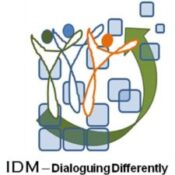By Karin Ulmer & Bruno Frischherz – Analyzing texts other than interview transcripts based on the DTF Framework taught at IDM is a new application of CDF. Our paper presents an example of dialectical text analysis with a focus on i) the analytical framework and CDF methodology and, as analysis content, ii) key concepts of green economy. Our article compares two institutional policy documents, one authored by the European Commission, and one by the United Nations Environmental Programme (produced in preparation to the UN Sustainable development Conference in Rio de Janeiro, July 2012.
The methodology of dialectical text analysis
Conclusions from the first part of this paper are that the CDF framework can be applied to written documents whatever topic they may deal with. The four classes of dialectical thought forms provide the analytical framework for measuring thinking processes documented in texts, while the four quadrants of integral theory provide a framework for seeing the world in terms of different perspectives. When we assume that each of the integral perspectives can be articulated in terms of the four quadrants of dialectic, we can determine the degree of dialectical sophistication with which each of the four integral perspectives is articulated in thought expressed in text. The limit of text analysis is the missing interlocutor, thus any possibility of probing for more differentiated thought.
Key concepts of green economy and governance
The second part of the paper elaborates the CDF approach to the sample texts chosen focusing on two base concepts, i.e., green economy and governance. In the paper, we select 12 text excerpts, score them and comments on them in some detail. The Cognitive Score of the European Commission text was found to be [22, 55, 10; 13 (%)], with a low System Thinking Index of 13%. This finding entails that the Commission text tends to move within a given, complex but rather static context of European policy making, foremost driven by institutions that regulate and introduce new instruments and incentives. By contrast, the Cognitive Score of the UNEP text was [21, 21, 26; 32 (%)], with a System Thinking Index of 32% (more than double). The UNEP text compares systems in order to identify specific options for action by governments using mainly regulatory power. The text tends to advocate for governance using political action, and this is reflected in the higher CDF Systems Thinking Index documented in the UNEP text.
Better thinking for sustainability
The dialectical text analysis also shows absences (what is missing) in the two policy documents. Such an analysis can help overcome presuppositions, promote more inclusive thinking, and open forums for dialogue; — all these are ingredients of dialectical thinking in politics. For bringing this about, we need politicians to take a lead in public debate and functions, we also need to transform existing discussion forums in order to provoke critical conversations about our assumptions, invite and induce practical knowledge, and prepare common ground for transformative collective actions.
Conclusion on the CDF framework
Dialectical text analysis is an expansion of the present scope of CDF as taught at the Interdevelopmental Institute (IDM). At the moment CDF serves as a framework for interviews meant to assess hidden cognitive or social-emotional dimensions of individuals, especially business leaders. Clearly, CDF can equally be used for text or discourse analysis meant to help transform the thinking of groups. This means a further development of CDF in three dimensions:
- from interviews to texts (discourse): We can use dialectical thought forms to analyze any spoken or written text.
- from individuals to groups: We can use CDF to assess not only individuals, but also groups and their thoughts, values and feelings.
- from assessment to transformation: We can use dialectical thought forms not only to assess, but also to transform, thinking.
Download: Ulmer_Frischherz_2012_dialectical_thinking_and_comparative_text_analysis


This is a groundbreaking article on text analysis based on dialectical thinking, applied to an important topic. Well done! The article shows that through CDF different levels of thinking in texts can be discovered and that, in reverse, texts can be engineered so as to show greater complexity of thinking. The consequences of this for education and criticism are huge! Thank you so much.
Comments are closed.